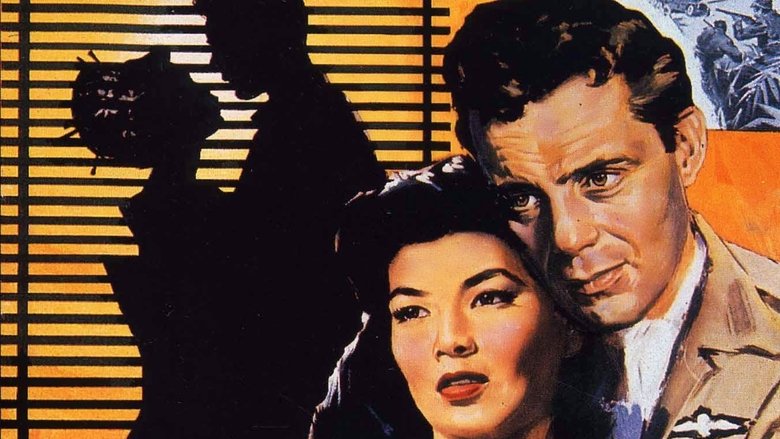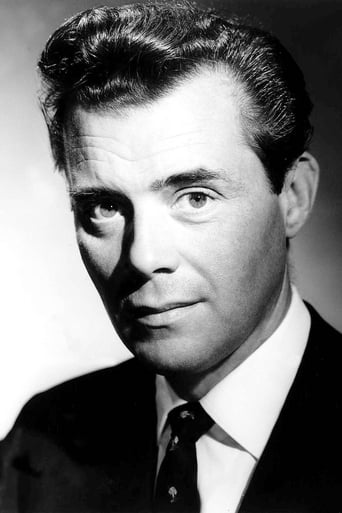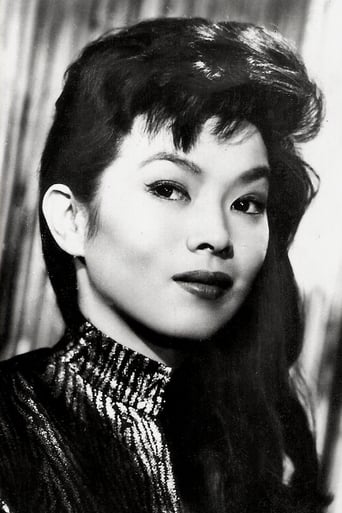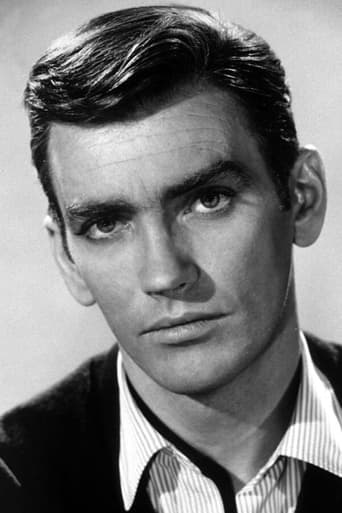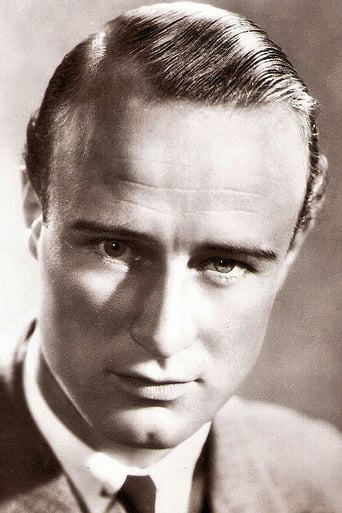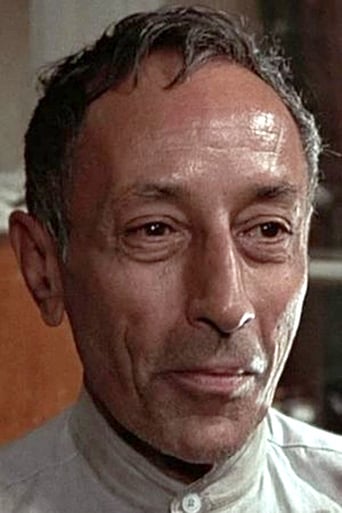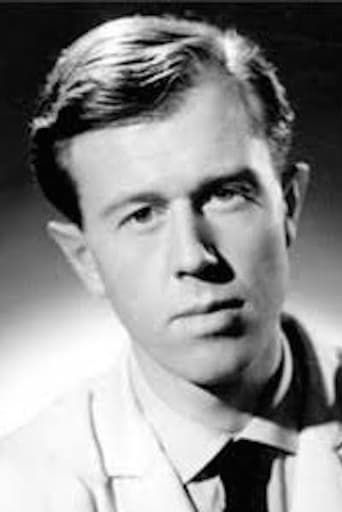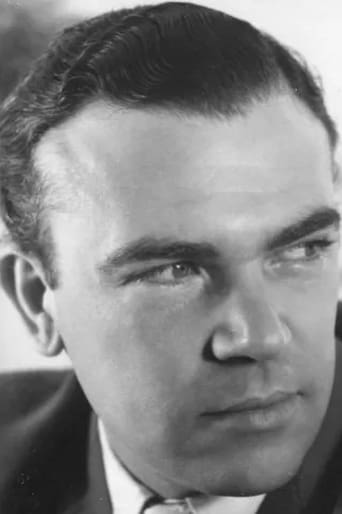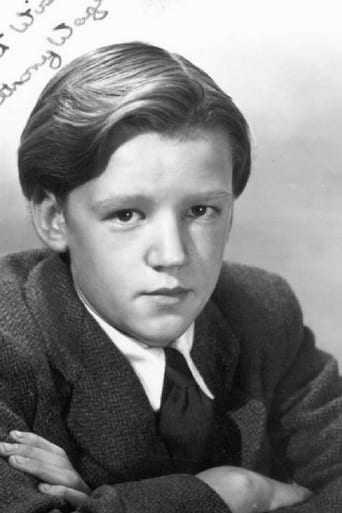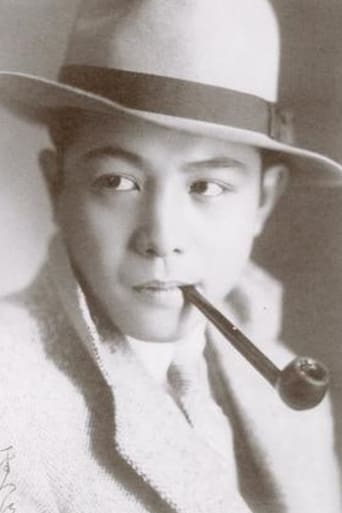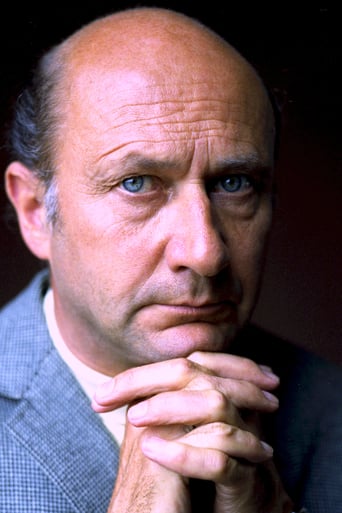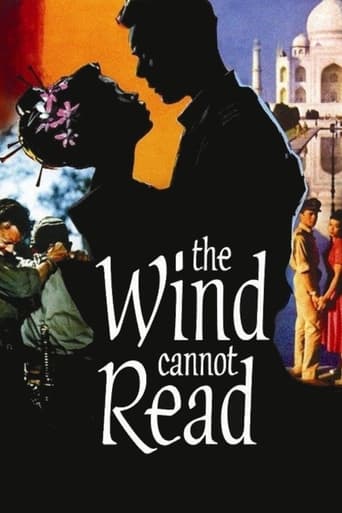
A British officer falls in love with his Japanese instructor at a military language school. They start a romance, but she is regarded as the enemy and is not accepted by his countrymen.
Similar titles
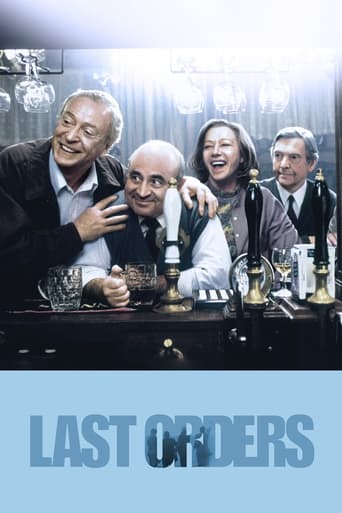
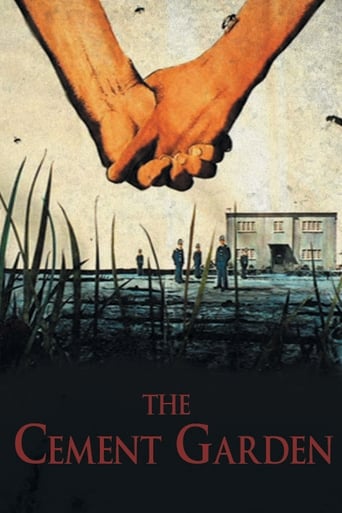
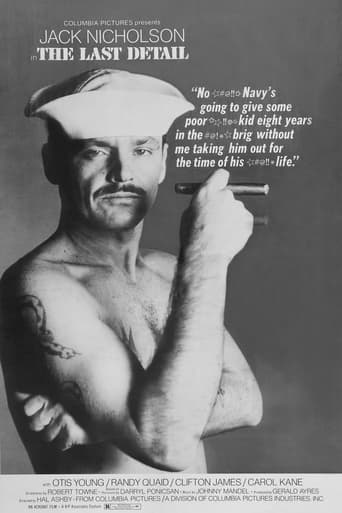
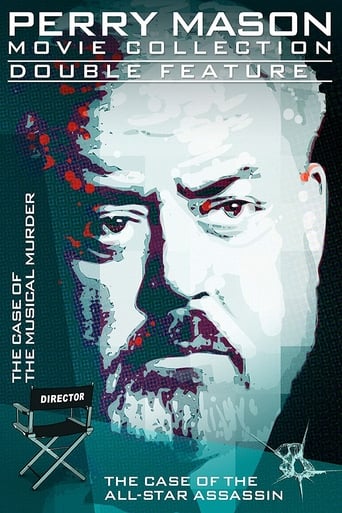
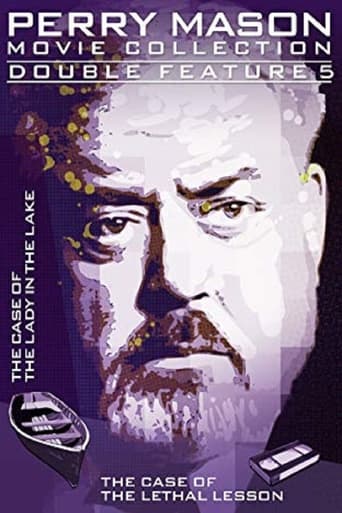
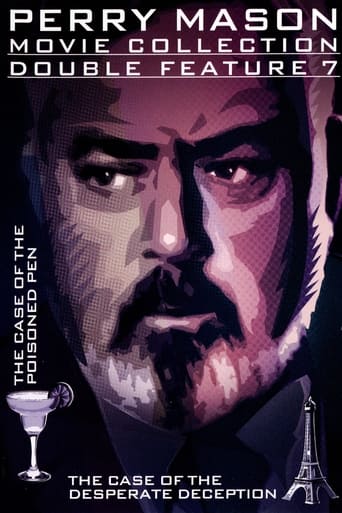
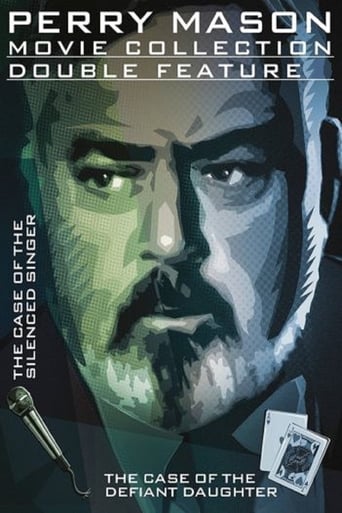


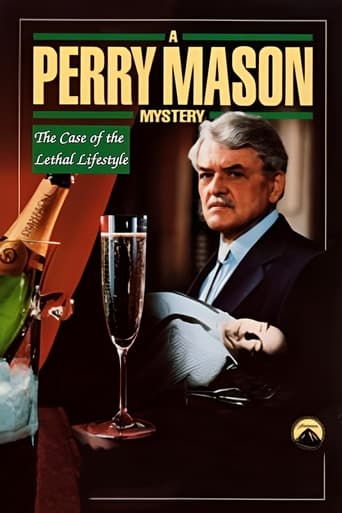
Reviews
Thanks for the memories!
Fun premise, good actors, bad writing. This film seemed to have potential at the beginning but it quickly devolves into a trite action film. Ultimately it's very boring.
The best films of this genre always show a path and provide a takeaway for being a better person.
There are moments in this movie where the great movie it could've been peek out... They're fleeting, here, but they're worth savoring, and they happen often enough to make it worth your while.
This was one of the colour films made on location by Rank in the late fifties to get people back into the cinemas.With films like this such a move was bound to fail.The story is risible.Bogarde plays a decorated flying officer,who for no given reason is selected to learn Japanese.This despite having no declared linguistic skills.This school is held in Delhi,not the safest of places in 1943.He falls in love with teacher Yoko Tani who plays the role as if sleepwalkng.He is subsequently sent up to the front,when he is more likely to have been sent home.The ending is clearly aimed at the four hanky brigade.No wonder the Roxy closed after showing this.It died of shame.
This movie is based on a novel by British author Richard Mason, who also wrote "The World of Suzie Wong." In "The Wind Cannot Read," Mason weaves a story that seems to be based on several of his personal experiences in WWII. He studied Japanese and served in the RAF in the Far East, where he interrogated Japanese prisoners. This movie is a rather unique war film. It's one of a small number of WWII movies about the war in and concerning the Far East, especially India. It covers the training of military personnel to speak, read and write Japanese. Is there another film that does that? And, it covers interrogation of Japanese prisoners – something rare in WWII films. These aspects give this film historical value. For that reason, and the very good acting by everyone in the film, I rate it eight stars.The plot and script of the movie are disjointed, and the film in three or four places jumps from one place and situation to another rather abruptly. The core of the movie is a love story that is more believable than most romances in war flicks. The location, encounter and time in the film lend well to the possibility of a meaningful romance. One military situation in the film stands out for its absurdity. That is toward the end when the three officers who are expert Japanese interpreters and interrogators run into the enemy. What were they doing traveling together in a war zone? A single ambush, land mine, air strafing or tossed grenade could wipe out all of the British Japanese linguists in the Far East at once. Under no circumstances would those three men be in a lead jeep driving miles ahead of a convoy. Under no circumstances would they be scouting to set up a new interrogation base in an area that wasn't already secured by their own forces. Under no circumstances would they set out without knowing where they were going and where the enemy was. Yet in this movie, they do all of those things and drive right into the enemy's hands. This was a combat-experienced Brigadier at the head of the group. In real combat, something like this would never have taken place. So, it begs several questions. Was this incident, as portrayed, true to the book? If so, was it meant as a black eye to the British for military incompetence at times? And, if it was not intended as such, why in the world did the filmmakers not change it? They could easily have written another short scenario for Bogarde's injury and then return to his love. But that this scene remains as it is in the film seems to be a jab at the British military for its incompetence at times. And, it shows the serious consequences from such incompetence. Surely, the killing or capture of three highly trained officers as Japanese interrogators would be a huge loss at the Far East war front.
The movie's title, "The Wind Cannot Read," supposedly comes from an old Japanese proverb: "The sign says, 'Do not pick these blossoms,' but the wind cannot read." I'll buy it.The blossom here is the ingratiating Yoko Tani, the picker is Dirk Bogarde, the wind is love, and the sign is Tani's increasingly severe headaches.The film sticks pretty closely to a formula that seemed popular during the 1950s -- "Love Is A Many Splendored Thing," "Sayonara," "South Pacific." A Westerner, usually a service man, and a local Oriental girl fall in love and eventually, usually, something separates them. Well, as Ernest Hemingway observed, every love story is a tragedy if followed long enough because one of the lovers dies.Depending on what distracting additional ingredient are added to the formula, it's also known as "soap opera." In this instance, Dirk Bogarde and a couple of friends are RAF officers during World War II, assigned to a school in Delhi where they will learn Japanese while they recuperate from their efforts in combat. The senior officer, also a student, is a little stuffy but that has nothing to do with the plot. I kind of enjoyed the scenes in the classroom where an expressionless instructor has them repeat phrases over and over, until the far more demure, expressive, and colorful Yoko Tani joins the faculty. It reminded me of the classes I took in Mandarin Chinese, until I saw the handwriting on the wall and it was in English.The development of the love affair between Bogarde and Tani is achingly familiar. They visit the Taj Mahal, wander through the local market, giggle while they sample food from street vendors, and stand around watching blind local musicians play tunes in the middle of the street. That's when Yoko Tani first complains that the music is giving her a headache. If you can't divine where that headache is headed -- well, I feel sorry for you. You need to watch more weepers.There are some scenes tacked on penultimately in which Bogarde and the stuffy senior officer are captured and interrogated by the Japanese but they're not very interesting nor well integrated. The fact that both officers know Japanese isn't even worked into the plot.The Brits turned out some superlative war movies during the 1950s. This isn't one of them. It's a generally formulaic love story of two star-crossed and rather alien figures.
Dirk Bogarde's parts for Ralph Thomas are not among his best work,by a long shot.Drippy,the precedent user says ,and I can sadly find litlle fault with the opinion expressed.Besides ,the screenplay seems to have been written by chance:in its first part,the movie is pure bad soap opera,in the wake of Logan's superior "Sayonara"(1957) -the Japanese tongue is one of the most difficult in the world,but after a few weeks,Bogarde and his mates can speak in a very workmanlike way-where implausibilities abound (the female teacher is not the least one!).But the second part,which is roughly a war movie, verges on incoherence:there's the obligatory wicked cruel Japanese officer,and the bad news about Bogarde's love comes at the most awkward moment.This leads to an ending à la "a farewell to arms".The "poetic" prologue and epilogue are overkill.This forgotten movie has gone with the wind,which,as anybody knows,cannot read.
Top Streaming Movies











